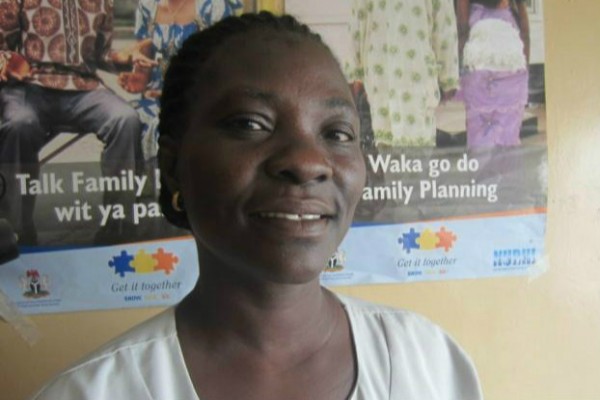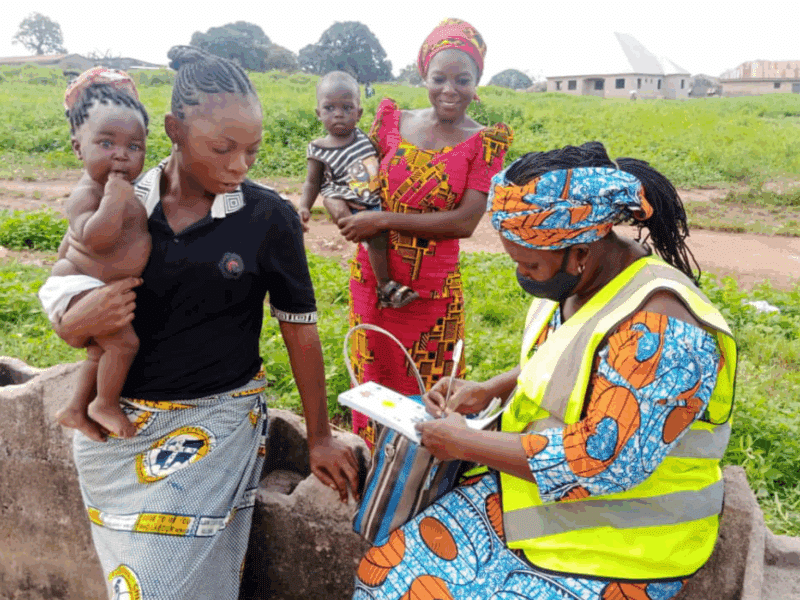Mrs. Aremu, a family planning provider at a primary health clinic in the densely populated Nigerian city of Ibadan, is ecstatic.
Ever since the Johns Hopkins Bloomberg School of Public Health’s Center for Communication Programs’ (JHU∙CCP) Nigeria Urban Reproductive Health Initiative (NURHI) has made it possible for her clinic to provide free family planning and NURHI staff have increased awareness and resolved misconceptions about FP, the number of clients seeking FP at her clinic has skyrocketed.
Prior to NURHI’s presence in Ibadan, myths about the impact of FP on women’s bodies as well as concerns about its cost prevented many women from using modern methods of contraception.
Mrs. Aremu, who has enjoyed providing FP for more than eight years, is elated that NURHI is providing accurate information. As a result, interest in FP continues to grow. She says, “From my point of view, family planning simply means having children by choice and not by chance. It also makes a mother healthy and able to care for her children properly.”
Mrs. Aremu is grateful for NURHI’s positive impact on her community as well as on herself. She beams as she explains that the trainings, seminars and refresher courses that NURHI offers to FP providers have honed her skills and given her the opportunity to develop new expertise, such as inserting long-lasting contraceptive implants which have proven increasingly popular among her new and returning clients.
According to the United Nations, approximately 222 million women in the developing world want to plan their pregnancies but lack modern contraceptives. With the assistance of NURHI, Mrs. Aremu is now one of many FP providers in Nigeria who can meet the FP needs of her clients. Speaking from experience, she attests to the important role FP providers will continue to play in communities by reducing poverty, joblessness and abortion-related mortality.
NURHI is a five-year project funded by the Bill and Melinda Gates Foundation to improve access to and demand for modern contraceptives. NUHRI is using public-private partnerships and innovative private-sector approaches to increase access to and use of FP by the urban poor.





